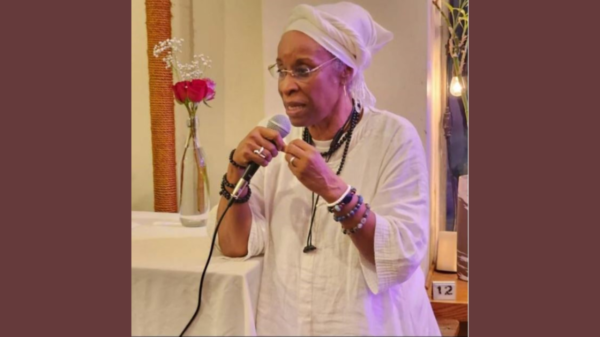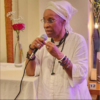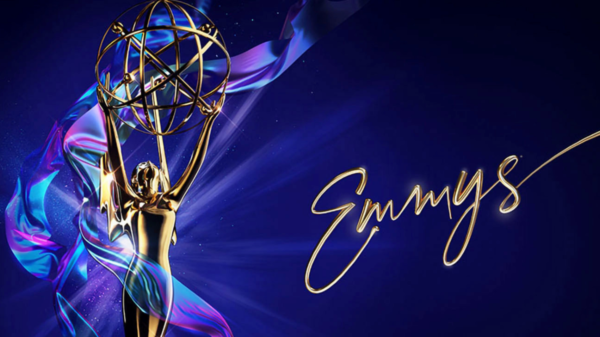
Black Headline News
Back in a 1974 review of the Bond-like Cleopatra Jones movie starring Tamara Dobson, Feminist and former Ms. Magazine editor Margaret Sloan spoke volumes about Black female spectatorial desire. Damn, that felt good she wrote. After viewing The Woman King, we know exactly what she meant.
Cleopatra, a beautiful, kick-ass Black woman empowered by the U.S. government but grounded in her commitment to the Black community, was a Black Power era fantasy character. Over 40 years later, Marvel’s Afrofuturist Black Panther teased us with the cinematic possibilities of Wakanda’s supporting characters, a squad of royal Black women soldiers. The Woman King brings such women to the center and importantly marks both the evolution and realization of this on-screen representation of Black women and the cinematic evolution of its director, Gina Prince-Bythewood.
Directed by Gina Prince-Bythewood with screenwriter Dana Stevens, The Woman King is inspired by the real-life Dahomey female warriors, the Agojie, who were formed in the 1700s and became legendary fighters. Viola Davis, who plays the fictional character General Nanisca – arguably a composite nod to various African warriors like Nzinga and Yaa Asantewaa, and an emerging young Agojie, Nawi (Thuso Mbedu), lead an extraordinary cast including, Lashana Lynch as the enthralling Izogie and John Boyega as young King Ghezo.
The Woman King is not a biography or intended to be a neat history lesson on African women warriors and as such takes full creative license to reimagine the Agojie, threading together the historical realities of slavery, racial, gender, and class violence to fashion a world in which women have not only a female-centered, controlled safe space to live but literal physical and socio-political choice, voice, and visibility within the patriarchal structure of their immediate community and beyond.
Women characters becoming sword slashing or shotgun-toting badasses (i.e., Kill Bill and Foxy Brown) or rebels against their prescribed roles (i.e. Thelma & Louise) have often still registered as objects of the traditional gaze, rendered more exotic or erotic because they take on expected tropes of masculine toughness or step out of their domestic roles and temporarily seize the day. Women wielding weapons as well as or better than men can too easily be deemed as radical representations of women with little attention to context or the problematic association of violent toughness with heroic maleness on screen.
The Woman King has a copious amount of violence and blood; brutal warring between different African nations and between the Africans and Europeans involved in turbulent at turns reciprocal slave trafficking is one of the unfortunate realistic historical threads exploited in the film’s unapologetic anti-Atlantic slave trade and African involvement sentiment.
However, the spectacle of physical violence is in service to the dominant and most important critical representation in the film – women whose reaffirming collective sisterhood is a formidable force against patriarchal oppression and to an extent racial and class oppression. The women the Agojie rescue or take captive after the battle are given the power to choose a rare life and identity for themselves whereas men do not generally dictate their daily movements or can willfully them to be subservient wives, daughters, or servants that they can rape and beat at will.
To become Agojie is to fight for their male king and Dahomey, but as they remind each other, they fight for themselves and each other in service to their own double-edged quest for freedom and power as women and Dahomey people. This is not pretty work, women soldiering in battle with and against men. This is why the rare movie depiction of Black women in the community within the Agojie compound registers so magnificently.
Here neither men’s gaze nor presence is allowed. Here women dance, train, and braid each other’s hair, tend tenderly to one another’s wounds, strategize, debate respectfully, learn to transcend ethnic differences, and grow their sense of individual and collective empowerment.
The French slavers call them “Amazons” but this dismissive historical tag holds no weight in The Woman King. The women in the film hold the controlling narrative point of view and declare themselves, “Agojie” and “sisters” and there is the possibility of a ‘Woman King’.
Gina Price-Bythewood’s Black romantic classic, Love and Basketball (2000) marked the debut of its promising director. Two Black leads (portrayed by Sanaa Lathan and Omar Epps) come to bond over their passion for playing basketball and later fall in love. We loved Prince-Bythewood’s exploration of a Black woman’s uneasy navigation of her professional ambition and the social gender expectations as her traditional mother’s daughter and boyfriend’s girl. And yet, it settled uneasily. Her passion and ambition for basketball rises, falls and rises again with the twists and turns of her romantic relationship until she’s happily settled in domestic life and in the WNBA.
Later, in Price-Bythewood’s under-rated Beyond the Lights (2014), the exploration of women’s difficulties choosing and defining their paths and self-identity continues with a young pop singer (Gugu Mbatha-raw) struggling to navigate the expectations of her manager mother and pop stardom; a romance with a regular good guy (Nate Parker) helps her to ultimately step into the music and self-representation she truly desires.
In real life, the Agojie were devastated by Dahomey’s ongoing conflicts – wars with other African nations and participation in and against the slave trade with the Europeans – becoming an exhibition for the Western gaze and historical record.
But The Woman King, thank you very much, is a movie. Gina Prince-Bythewood directs her fullest, most satisfying representation of Black women’s quest for autonomy and actualization. The Woman King boldly unsettles the traditional spectacle of patriarchy and not because the women fight with such dazzling physical might and skill with their bodies or rope and machete in hand, but because the most radical thing is that the love, intimacy, and sisterhood between women, the collective power of this, sits boldly at the center of The Woman King. In American popular film, this is revolutionary.
Words by: Dr. Stephane Dunn and Dr. Beverly Guy-Sheftal
Dr. Stephane Dunn, PhD, MA, MFA is a writer, filmmaker, professor, and cultural critic and author of Baad Bitches & Sassy Supermamas: Black Power Action Films (2008), Chicago ’66 (2020) Finish Line/Tirota Social Impact Screenplay winner) & the novel Snitchers (2022). She is chair of the Morehouse Cinema, Television & Emerging Media Studies (CTEMS) department. Her work has appeared in a number of publications including, The Atlantic, Vogue, Ms. magazine, Chronicle of Higher Education, and TheRoot.com, among others
@DrStephaneDunn
stephanedunn_writes
Dr. Beverly Guy-Sheftal is Anna Julia Cooper Professor of Women’s Studies and the Founder and Director of the Women’s Research and Resource Center, at Spelman College. Sheftall published the first anthology on Black women’s literature, Sturdy Black Bridges: Visions of Black Women in Literature (Doubleday, 1979), with Roseann P. Bell and Bettye Parker Smith; Words of Fire: An Anthology of African American Feminist Thought (New Press, 1995); Traps: African American Men on Gender and Sexuality (Indiana University Press, 2001) and (with Johnnetta Betsch Cole Gender Talk: The Struggle for Equality in African American Communities,
@DrGuySheftall





You must be logged in to post a comment Login